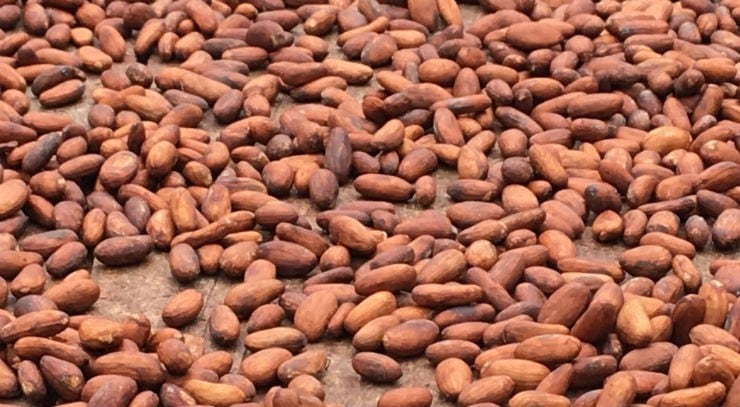Reuters reported that the benchmark September contract for cocoa in London gained more than 2% last week to 2,590 pounds per metric ton. The session high (Wednesday 28 June) was the highest price since 1977 at 2,594 pounds.
Analysts said prices are rising in reaction to a tight market for cocoa beans, with arrivals of cocoa at Cote d’Ivoire ports (the world’s largest producer) for export down nearly 5% this season.
The International Cocoa Organization (ICCO) said it has also widened its forecast for a global deficit on cocoa supply from 60,000 metric tons previously to 142,000 metric tons.
"It is the second consecutive season with a supply deficit," Leonardo Rosseti, cocoa analyst at broker StoneX, told Reuters. He said that the stocks-to-use ratio, an indicator of cocoa availability in the market, is expected to fall to 32.2%, the lowest since the 1984-85 season.
Cote d’Ivoire’s main crop which starts in October, has been hit by above-average rains in June and has also affected the drying process for cocoa beans that have already been collected.
Cocoa prices rose in New York as well at the end of June. The September contract gained 2.7% to $3,348 a metric ton, its highest in 7-1/2 years, Reuters reported.
Soft commodities
In other soft commodities, July raw sugar fell 0.46 cent, or 2%, at 22.57 cents per lb. Arabica coffee settled down 5 cents, or 3%, at $1.6195 per lb, while robusta coffee fell $99, or 3.6%, at $2,616 a metric ton.
According to Kate Leaman, chief market analyst at AvaTrade, the price of soft commodities is currently falling as a result of the following: “Looking at our most falling table this week, the top three instruments which had seen a price drop in the past week were all soft commodities. The fall in the price of both corn and wheat is on account of the extension of the UN-facilitated grain deal between Russia and Ukraine until 18 July, which has led to a rise in Ukrainian grain supply, increasing global corn and wheat exports.
“What’s more, countries around the world are beginning to feel the effects of El Niño. As the weather phenomenon is typically associated with bringing increased rainfall to regions such as the US and Canada, this has resulted in corn and wheat output in both nations actually benefitting from the heavy rains El Niño brings. As two of the largest global exporters of the commodities, this has seen prices fall.
“In terms of sugar, prices have fallen on account of an increase in sugar supply from Brazil – the largest sugar producer and exporter in the world. Per UNICA, the Brazilian sugar-cane industry association, the country’s 2023-24 sugar production rose 37.7% Year-over-Year (YoY) in May, while sugarcane crushing rose to 46.8%, compared to 40.5% in May 2022.
“It looks like traders currently holding these soft commodities are looking to sell now in order to avoid a loss when prices crash. Of course, this doesn't mean that these price drops will immediately translate into lower prices at supermarkets or restaurants.”



